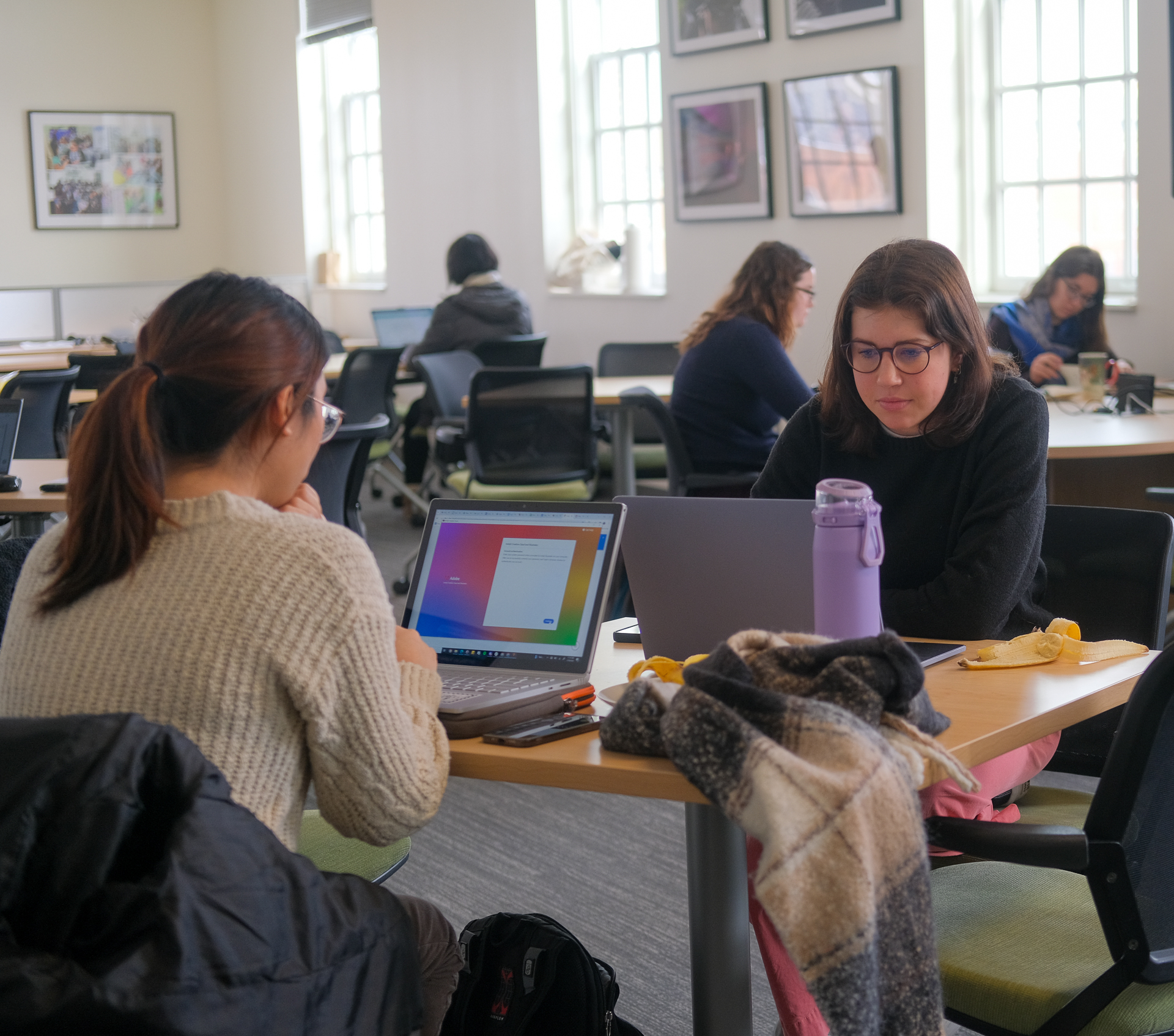Organization
Director
Yi Ting Huang
Director, Maryland Language Science Center
0141A Lefrak Hall
College Park
MD,
20742
Management Staff
Caitlin E. Eaves
Assistant Director for Administration & Finance, Maryland Language Science Center
2130D H.J. Patterson Hall
College Park
MD,
20742
Naia Lee-Hendricks
Communications Coordinator, Maryland Language Science Center
Graduate Student, American Studies
2130J HJ Patterson Hall
College Park
MD,
20742
Shevaun Lewis
Assistant Director and Associate Research Professor, Maryland Language Science Center
Alumni, Linguistics
2130E H.J. Patterson
College Park
MD,
20742
Rochelle Nelson
Administration and Finance Coordinator, Maryland Language Science Center
2130J HJ Patterson Hall
College Park
MD,
20742
Oversight
- Jennifer King Rice, Provost
- Greg Ball, Vice President for Research
- Stephanie Shonekan, Dean, College of Arts & Humanities
- Susan Rivera, Dean, College of Behavioral and Social Sciences
- Eric Chapman, Associate Vice President for Research Development
Committees
Steering Committee
LSC's Steering Committee develops LSC's mission and goals. It consists of 6 elected faculty members, 2 members of the Graduate Student Board (see below), and up to 4 additional appointed members.
- Director: Yi Ting Huang (HESP)
- Shenika Hankerson (TLPL, elected 2023)
- Jared Novick (HESP, elected 2023)
- Rachel Romeo (HDQM, elected 2025)
- Kate Mooney (LING, elected 2024)
- Rochelle Newman (HESP, elected 2024)
- Ellen Lau (LING, elected 2025)
- Alexander Williams (LING, appointed 2025)
- Elisa Gironzetti (SLLC, appointed 2025)
- Laura Mahalingappa (TLPL, appointed 2025)
- Erik Nesse (ARLIS, appointed 2024)
- Mine Muezzinoglu (representative from Graduate Student Board, elected 2024)
- Shevaun Lewis (MLSC, non-voting member)
- Caitlin Eaves (MLSC, non-voting member)
Graduate Student Board
Student leadership is key to the success of the UMD language science community. The Graduate Student Board is comprised of four graduate students, elected by their fellow graduate students for staggered two-year terms. At least three departments must be represented on the Board at all times.
- Kristin Hoch (NACS/HESP, elected 2024)
- Mine Muezzinoglu (NACS/HESP/PSYC, elected 2024)
- Ciaran Stone (NACS/HESP, elected 2025)
- Jamie Smith (CHSE, elected 2025)
The Graduate Student Board typically meets once every 1-2 months. Its mission and goals include:
- Help identify and communicate the priorities and concerns of graduate students in the language science community
- Communicate formally and informally with students and committees, and meet about once per month to discuss the needs and interests of the broader student community
- Work directly with the LSC management team to plan activities and initiatives to serve graduate students.
- Two of the four board members will serve as members of the Steering Committee and play a direct role in decisions about LSC priorities, activities, and budget.
Research Skills & Collaboration
The goal of the Research Committee is to provide useful research training not offered in the conventional graduate training of individual departments, as well as to foster a community environment of rich interdisciplinary collaboration, generating increased opportunities for interdisciplinary discussion and project development.
2018-2019 Chair: Zoe Ovans (NACS/HESP)
Professional Development & Communication
The Professional Development Committee aims to support language science students in designing and achieving their career goals and developing "soft" skills. The committee organizes events and resources to promote communication skills, collaboration, and career planning, including the weekly Language Science Lunch Talks.
2018-2019 Chair: Allie Johnson (HESP)
Outreach
The goal of the Outreach Committee is to inform the public about what language science is and why it’s important. To this end, the committee organizes campus visits from nearby high schools, participates in STEM career fairs, and staffs a language science booth at Maryland Day, among other activities.
2018-2019 Chair: Tyler Knowlton (LING)
Faculty advisor: Jeff Lidz (LING)
Policy & Advocacy
The goal of the Policy & Advocacy Committee is to increase the visibility and impact of language science research on policy at the university, local, and national levels. The committee works to engage UMD language scientists in discussions and outreach on relevant issues, and develop students' skills in communicating with policy makers and the public.
2018-2019 Chairs: Carolin Arnold (CS) & Zach Maher (NACS/HESP)
Student Leadership
Student leadership of language science activities is a key element of our training program, and has many benefits:
- It ensures that the focus of our programs is closely aligned with student interests;
- It helps keep activities and events 'fresh' with new ideas and talent;
- Students develop skills in leadership, interdisciplinary communication, and in creating research networks;
- Students build and strengthen connections with peers and faculty in different research areas.
Elections
Every spring, the Language Science Center holds elections for two Steering Committee and two Graduate Student Board members.
In order to run or vote in elections, participants must be official members of the LSC. If you are not yet a member, you can easily join here!
2025 Elections
The next election for the Steering Committee and Graduate Student Board will be held in March-April 2025.


